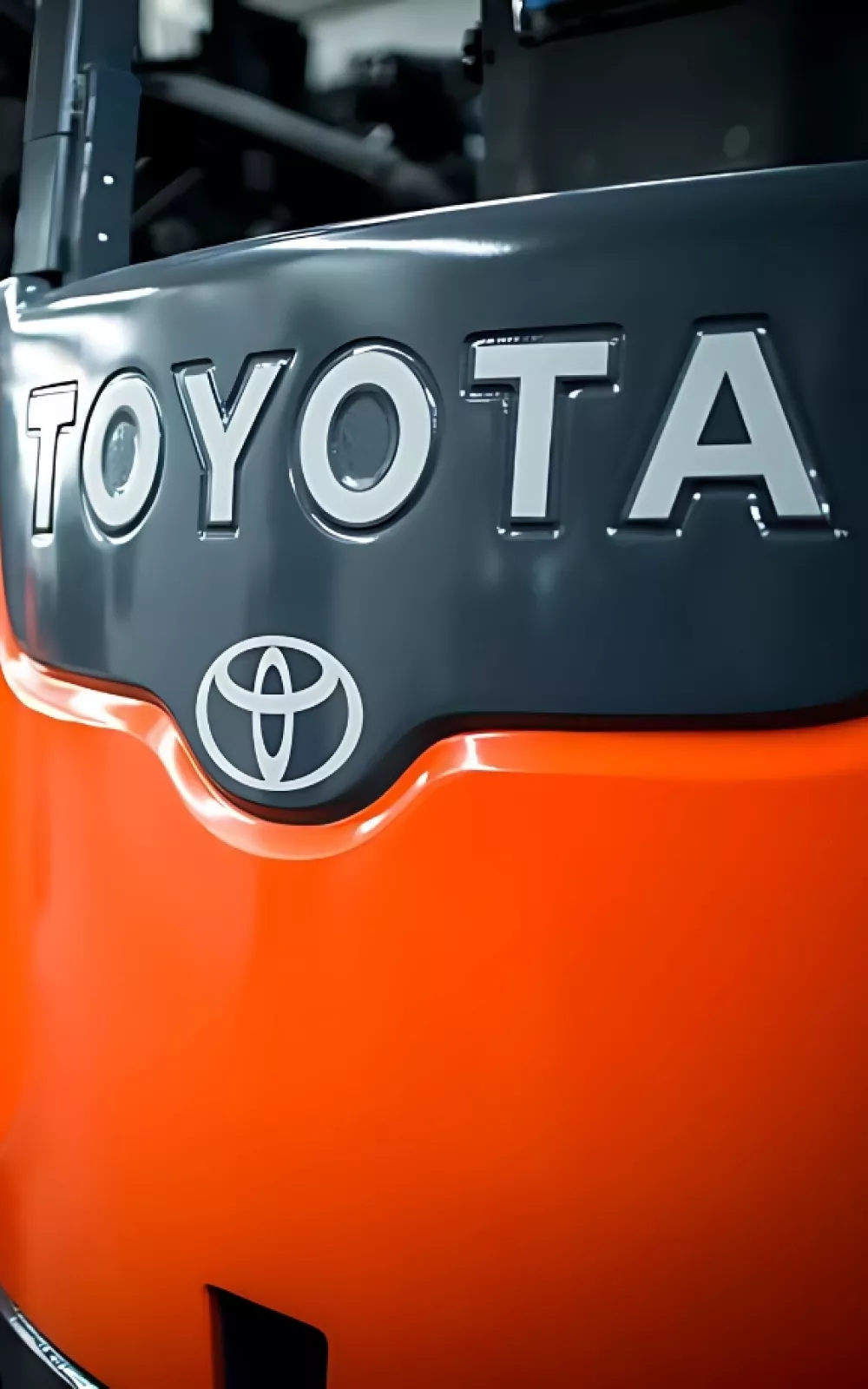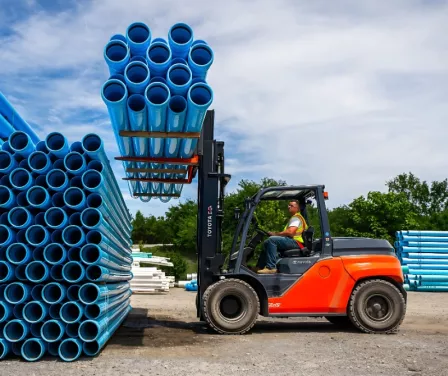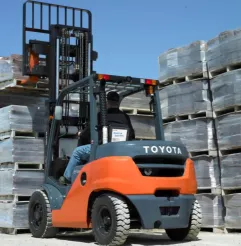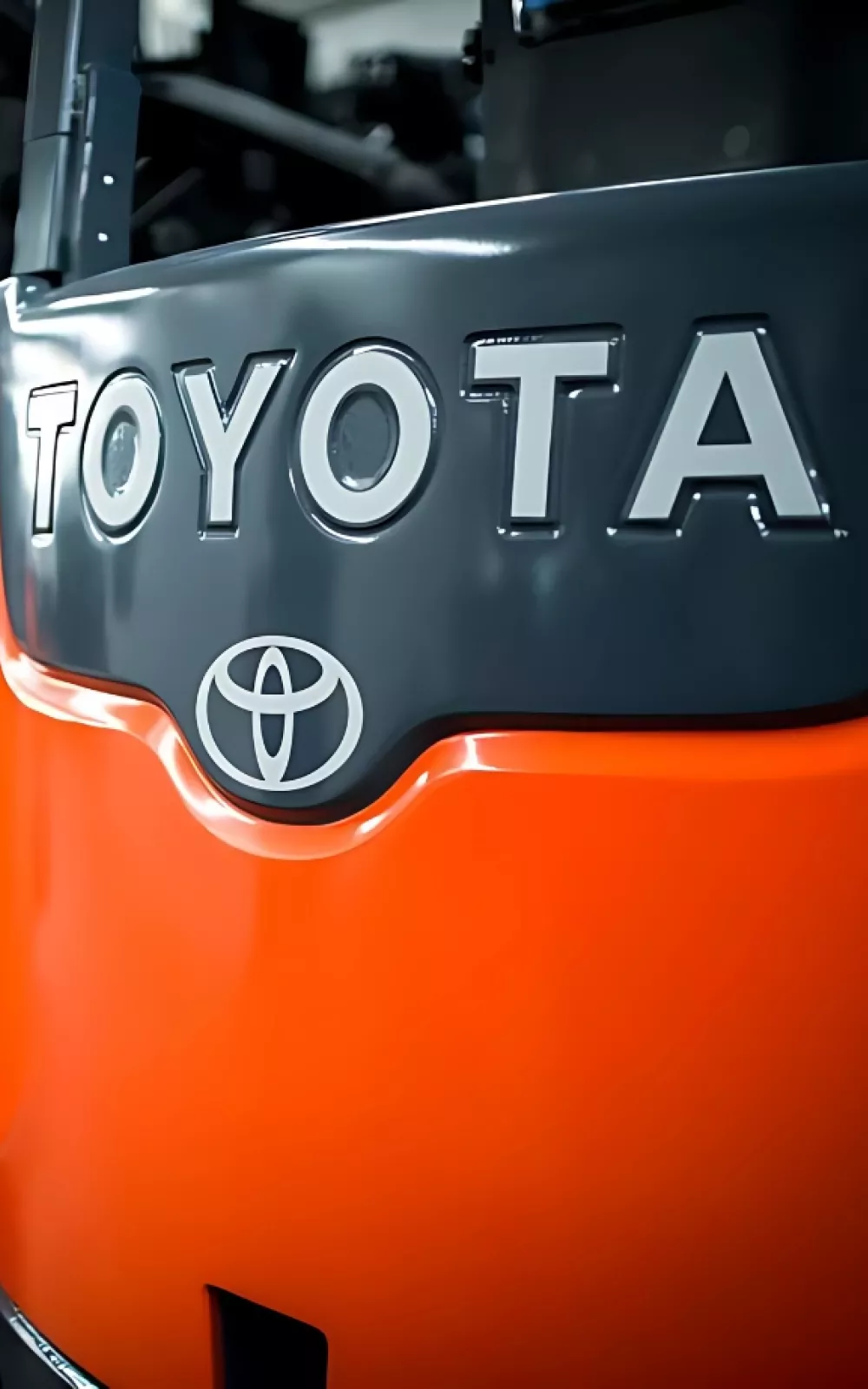Rent
ProLift offers daily, weekly, and monthly rentals. Find the right equipment for maximum productivity and safety.
Let us know how we can assist you! A ProLift specialist will connect with you to help with your material handling needs.

ProLift debunks common myths about large capacity forklifts and reveals the surprising truth behind their efficiency, versatility, and ease of use. If you're considering one for your operation, don't let these misconceptions hold you back—learn how these powerful machines can boost productivity and handle even the toughest jobs!

Large capacity forklifts are more than just heavier counterweights. Thinking otherwise can lead to increased forklift repairs and a higher risk of accidents.
You’re not picking up the typical product, wrapped and stacked neatly on a pallet. It’s heavy, long and awkward. This affects your forklift’s load center.
Attachments must also be taken into account when factoring the actual capacity. Keep data tags up-to-date and educate your operators on how to read and understand the information.
These forklifts are heavy and can crush pavement, dock boards and other surfaces not structured to hold such weight. One particularly dangerous scenario is using a large capacity forklift in a trailer. While the forklift may fit into the trailer, it will collapse the floor. Instruct operators where they can – and cannot – operate the forklift.
The majority of large capacity forklifts operate on diesel fuel, but operators may mistakenly fill the tank with gasoline. Compared to a smaller forklift, a large capacity forklift will be quicker and more responsive during operation. Operators should be given hands-on instruction and practice time with the forklift to understand the forklift’s speed.
When selecting equipment for your warehouse, visually inspecting the area and taking measurements is important. A large capacity forklift needs more room to maneuver, especially for its tail swing. When this isn’t taken into account, the operator may hit racking, product or another employee during turns.

The equipment you have may not align with what you need. Collaborate with ProLift sales consultants to review your short- and long-term production goals, budgets, and material handling trends. They’ll provide tailored equipment options and solutions to meet your specific needs.
A lot of steel is used within the mast of a large capacity forklift which decreases visibility for the operator. The lifted product creates an additional obstruction. Because it’s likely an operator cannot see them, pedestrians working in the warehouse should be especially cautious when a large capacity forklift is operating near their work station.
Air pressure for a large capacity forklift is critical. This means over-the-road tires cannot stand in for replacement forklift tires. For example, the average rating of a semi-truck tire is 14 ply as compared to a forklift tire at 18-24 ply. Because it can’t offer the same support to the forklift and the load, this overloading will lead to tire failure.
Proper and safe operation plays a critical role in the maintenance of large capacity forklifts. Just like smaller forklifts, overloading can strain mast chains, causing fork drag and wear. However, replacement parts for large capacity forklifts come at a higher cost and can quickly drain your annual maintenance budget. To avoid these issues, it’s essential to train operators thoroughly and regularly monitor their adherence to safety guidelines.
ProLift is your source for Toyota Forklifts, a leader in large capacity forklifts. Contact our sales consultants for a quote.
As a full-service material handling dealer, ProLift can help you with questions and solutions for your equipment, service, parts and more. Tell us how we can help.

Let us know how we can assist you! A ProLift specialist will connect with you to help with your material handling needs.
